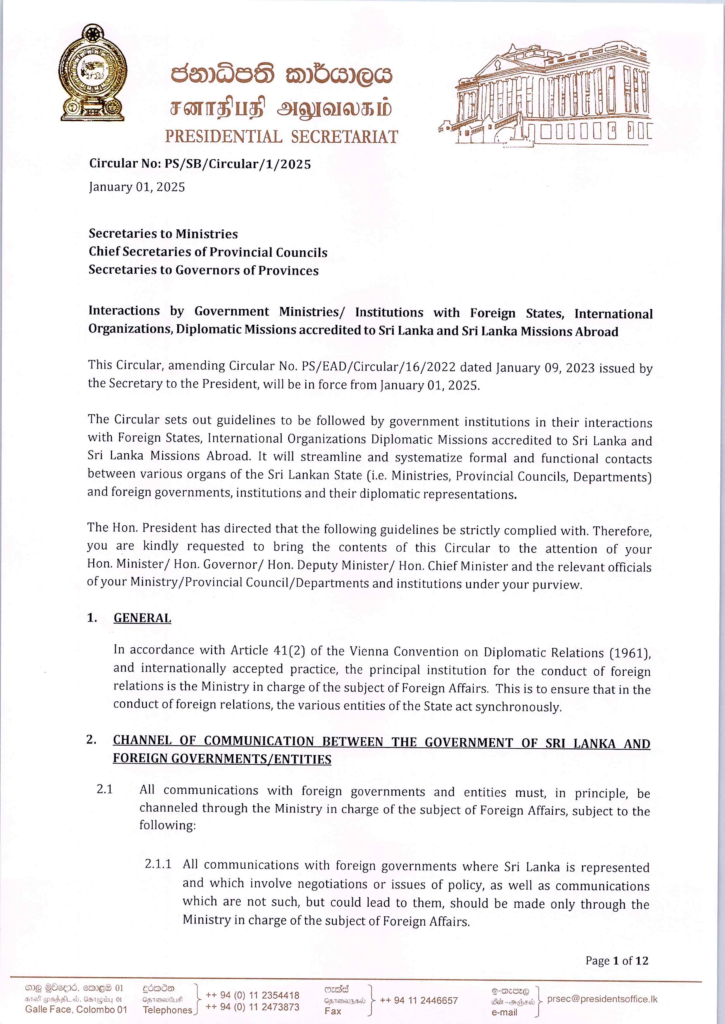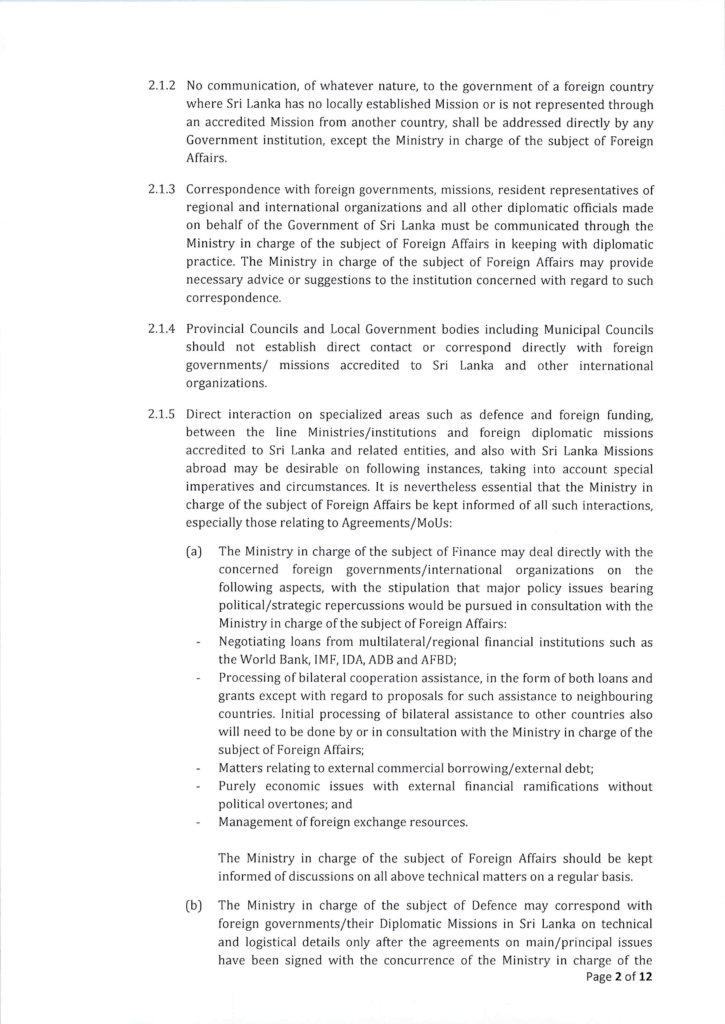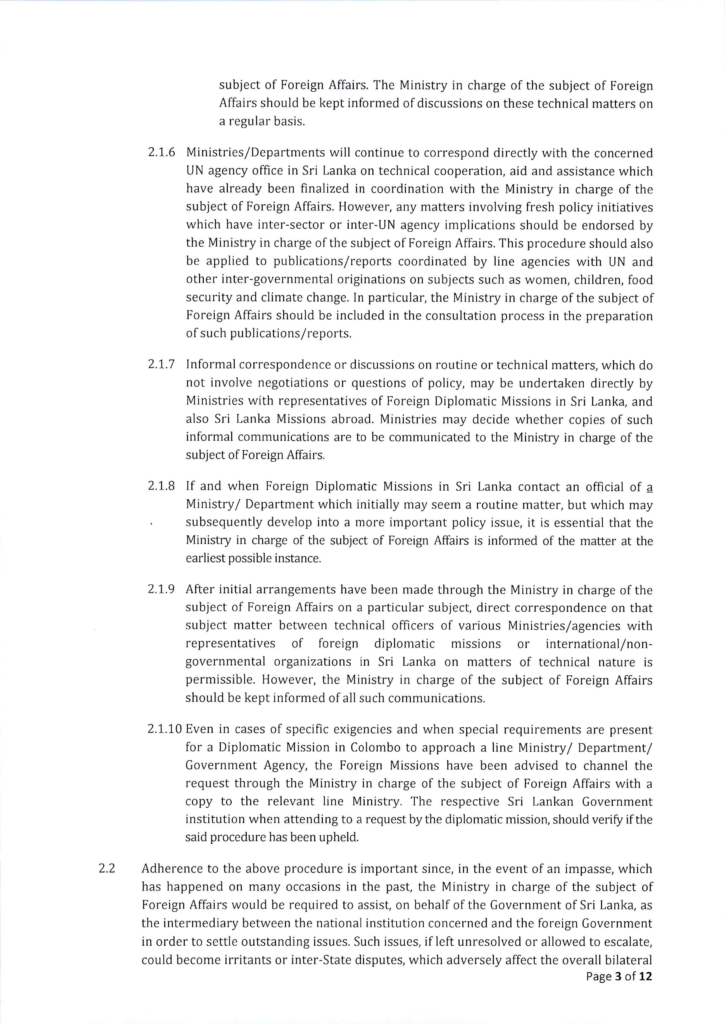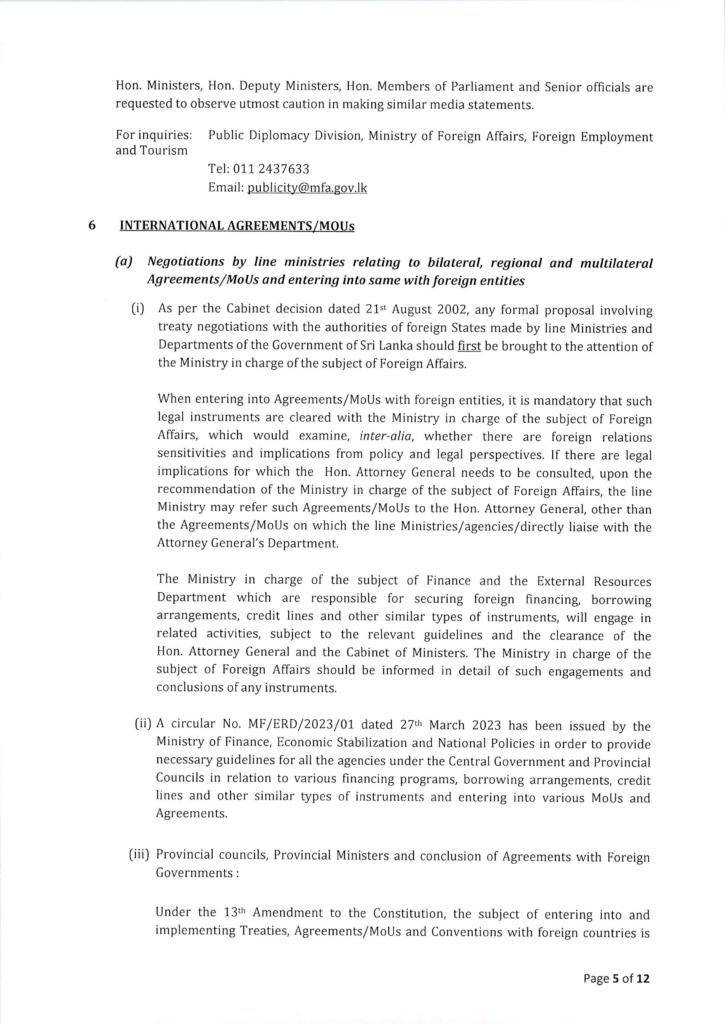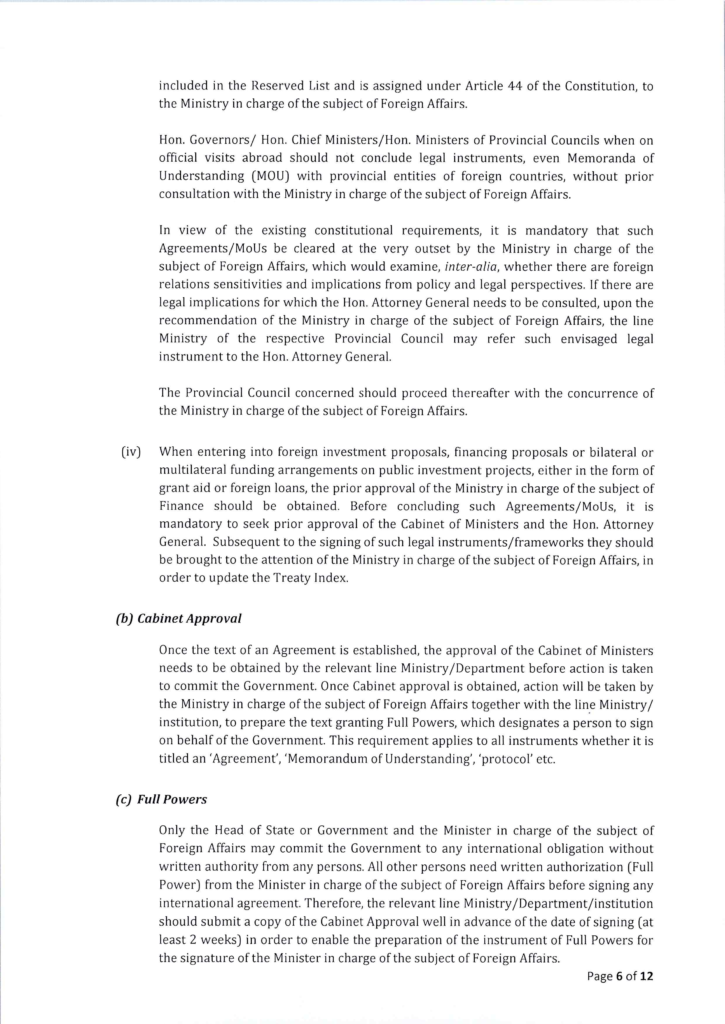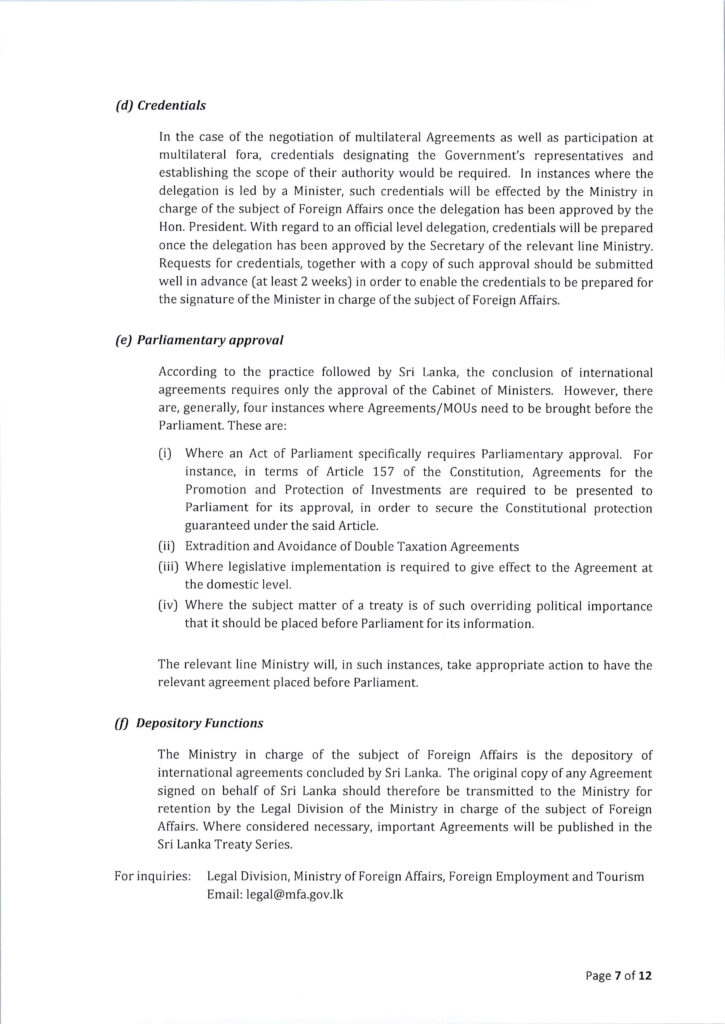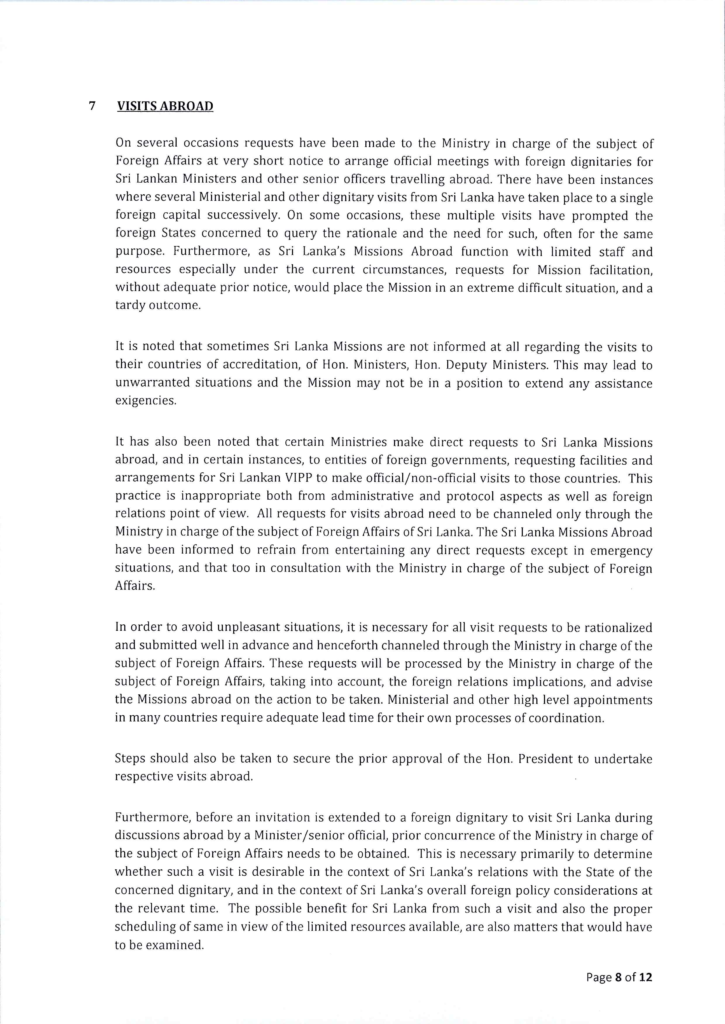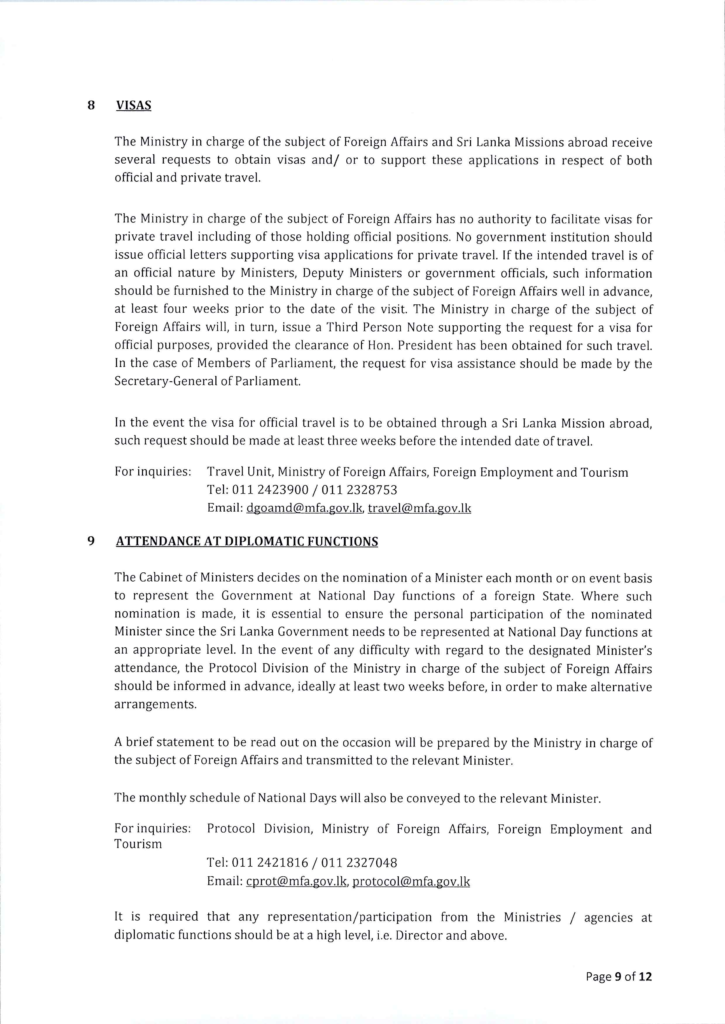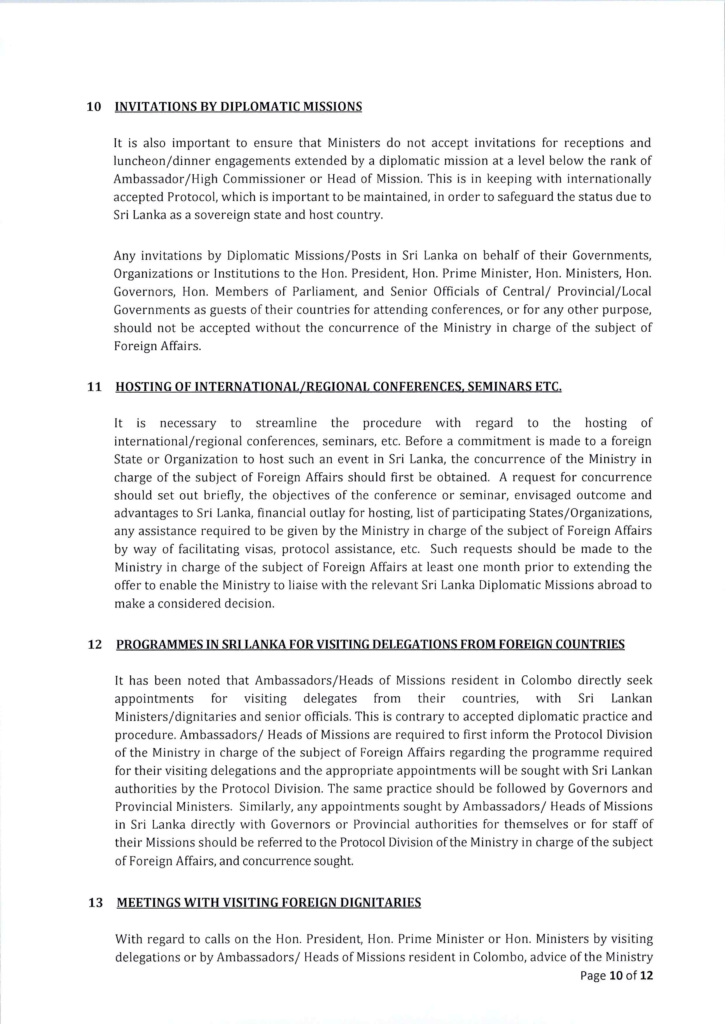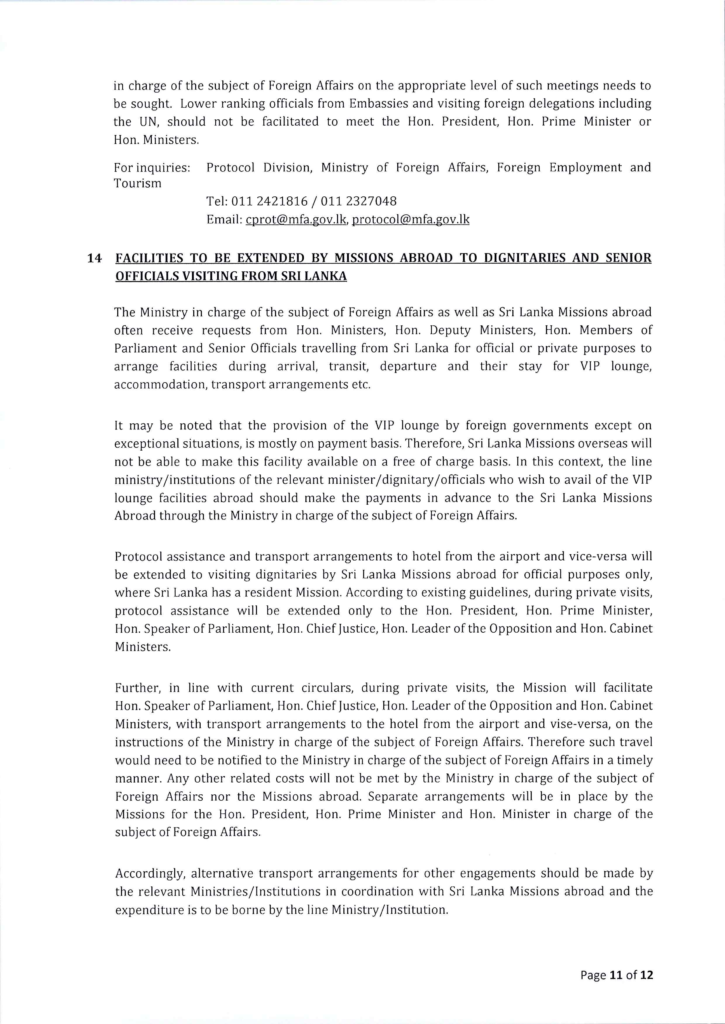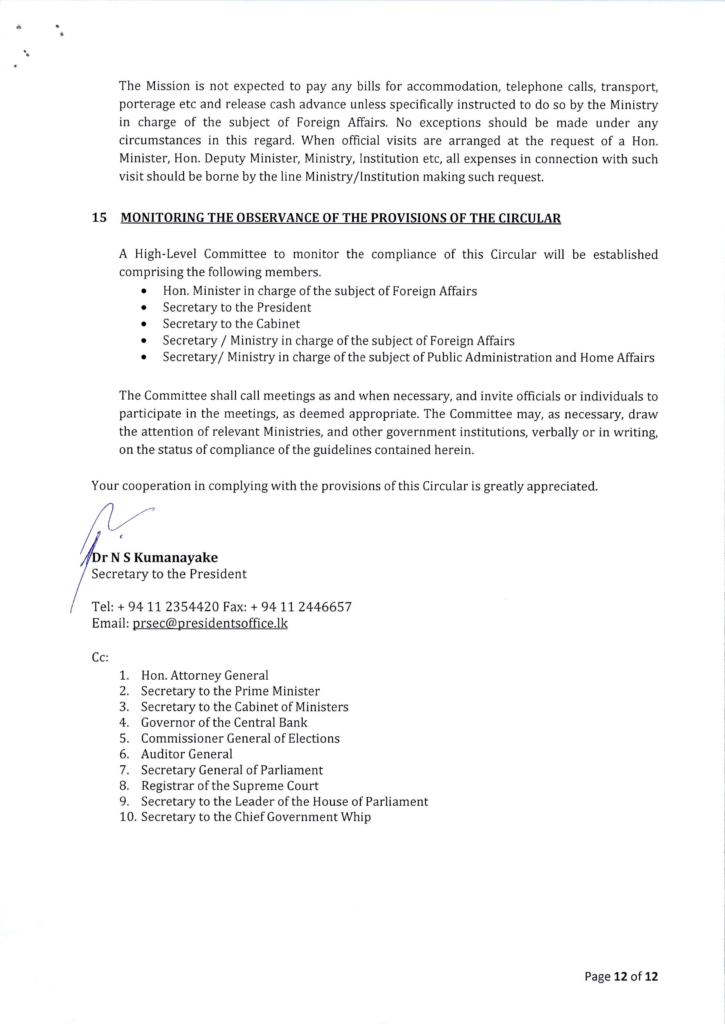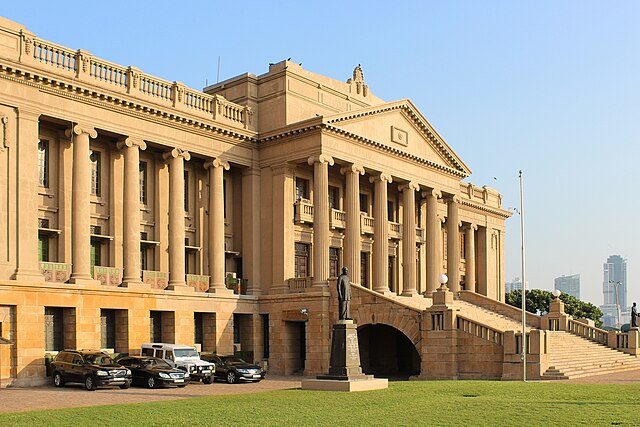By: Isuru Parakrama
January 06, Colombo (LNW): In a bid to enhance diplomatic coherence and streamline interactions with foreign entities, the President’s Secretariat of Sri Lanka has issued an extensive circular outlining directives for government institutions.
The revised guidelines, effective from January 01, 2025, aim to ensure all communication, agreements, and engagements with foreign states, diplomatic missions, and international organisations are aligned with Sri Lanka’s overarching foreign policy objectives.
The circular emphasises the centrality of the Ministry of Foreign Affairs as the principal institution for managing foreign relations, in adherence to the Vienna Convention on Diplomatic Relations.
All correspondence involving foreign governments must be routed through this ministry.
Exceptions for technical discussions, such as defence logistics or financial negotiations, are permitted but require the ministry’s regular updates and concurrence.
Significant restrictions have been imposed on Provincial Councils and local government bodies, which are now prohibited from initiating direct contact with foreign entities.
This step seeks to prevent discrepancies in diplomatic engagements that could strain bilateral relations or escalate into inter-state disputes.
Similarly, the guidelines caution against engagements with non-recognised states or entities lacking diplomatic ties with Sri Lanka.
To regulate international agreements, the circular mandates clearance by the Ministry of Foreign Affairs at every stage.
Line ministries are required to secure Cabinet and Attorney General approval before committing to treaties, bilateral loans, or memoranda of understanding.
All agreements must also be recorded within the ministry’s treaty index.
The directives also address media interactions, forbidding officials from issuing foreign policy-related statements without written clearance. This policy aims to avert inconsistencies in diplomatic messaging that could compromise Sri Lanka’s international standing.
Additionally, the guidelines underline the importance of maintaining decorum at diplomatic functions, with ministers advised to accept invitations only from ambassadors or equivalent representatives.
Regarding international visits, the circular stipulates that requests for official meetings abroad must be channelled through the Ministry of Foreign Affairs. This measure is intended to prevent overlapping or unnecessary visits that burden Sri Lankan missions abroad, which already face resource constraints.
Visits by dignitaries to Sri Lanka will also require ministerial oversight to ensure alignment with national interests.
A High-Level Committee, comprising senior officials from the President’s Office and key ministries, has been established to monitor compliance with the circular. This committee will address violations and promote adherence to the prescribed protocols.
By fostering a unified approach, the government seeks to enhance its international reputation whilst effectively managing relations with foreign states and organisations.
